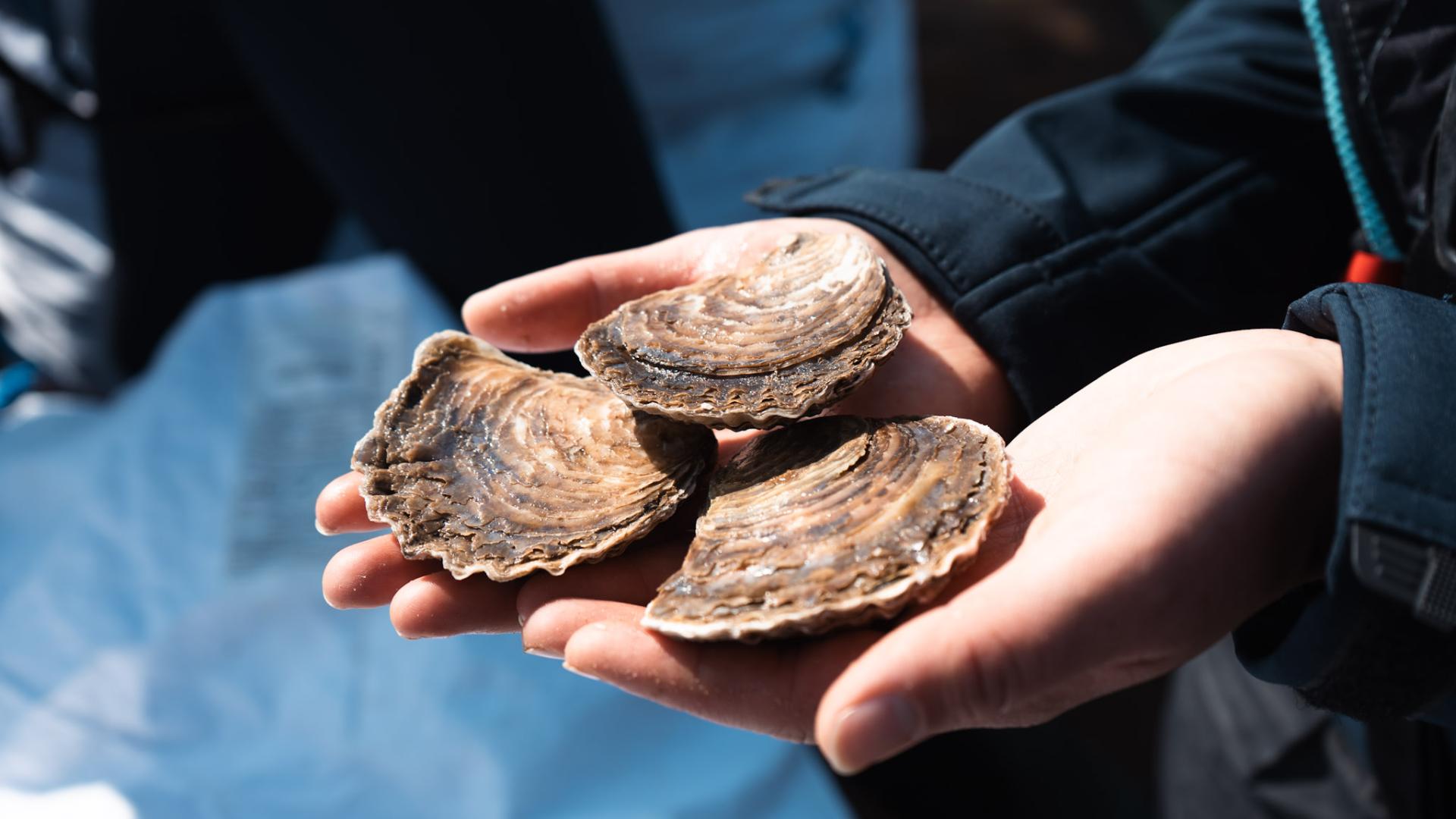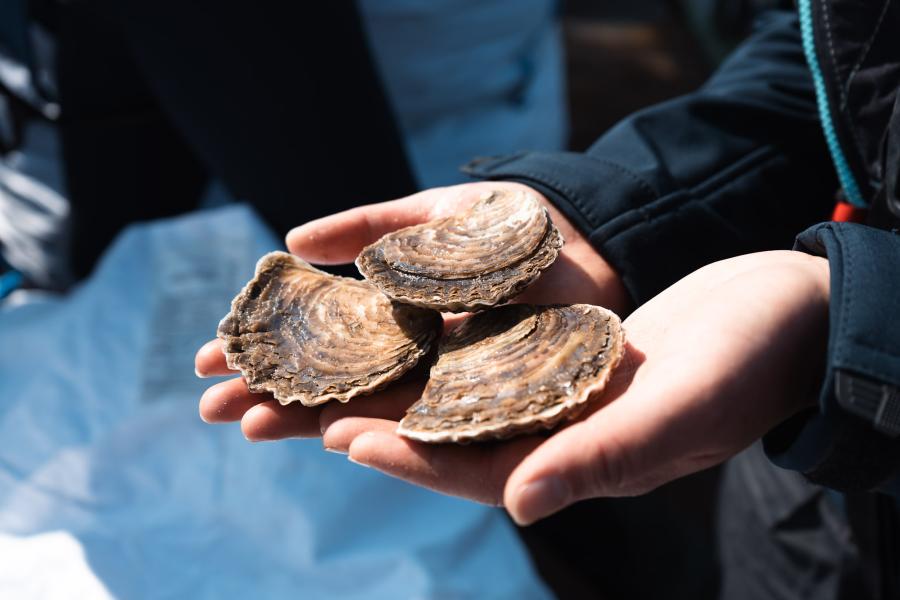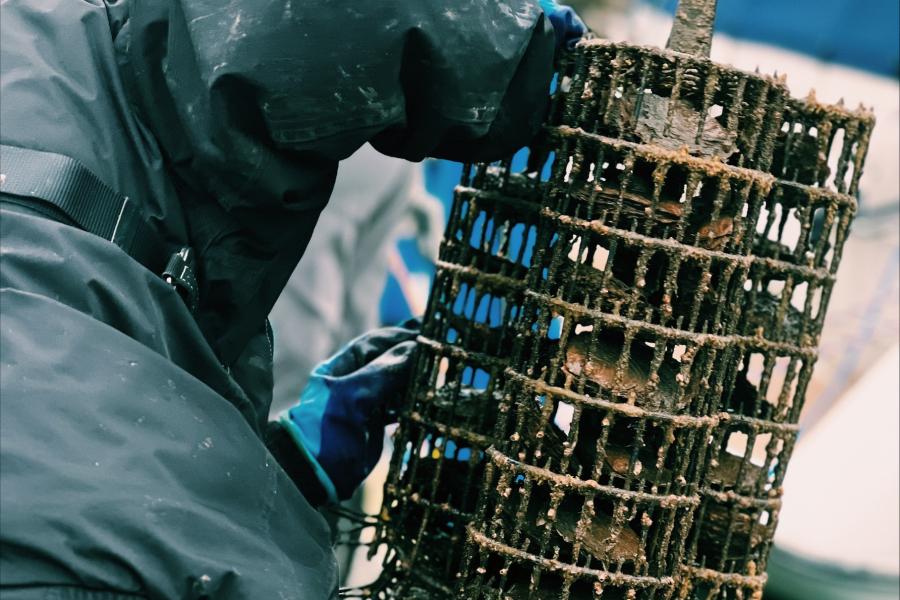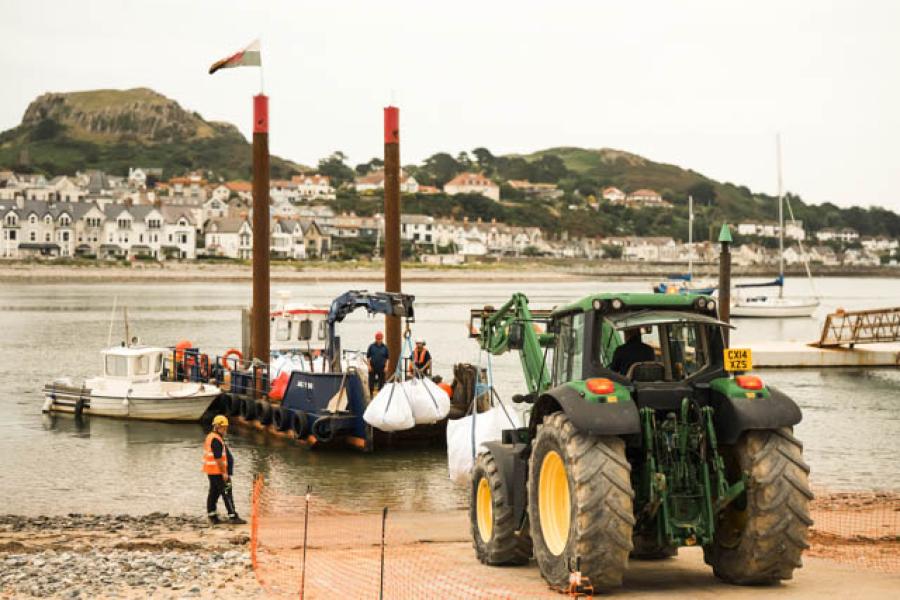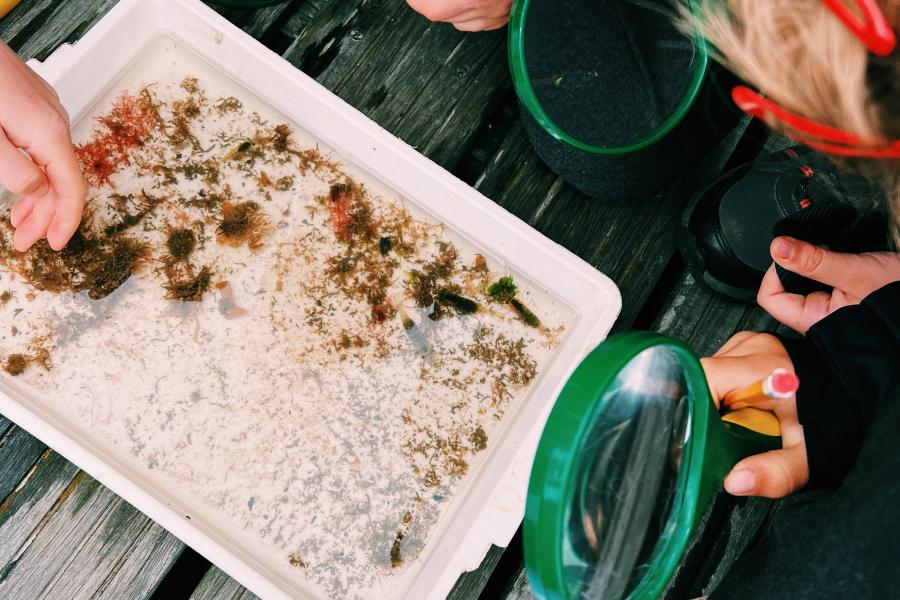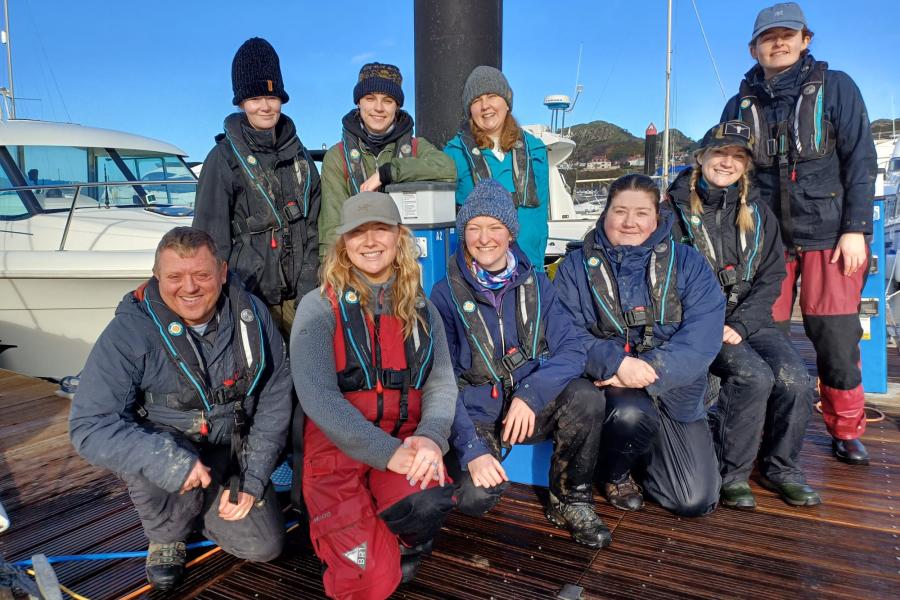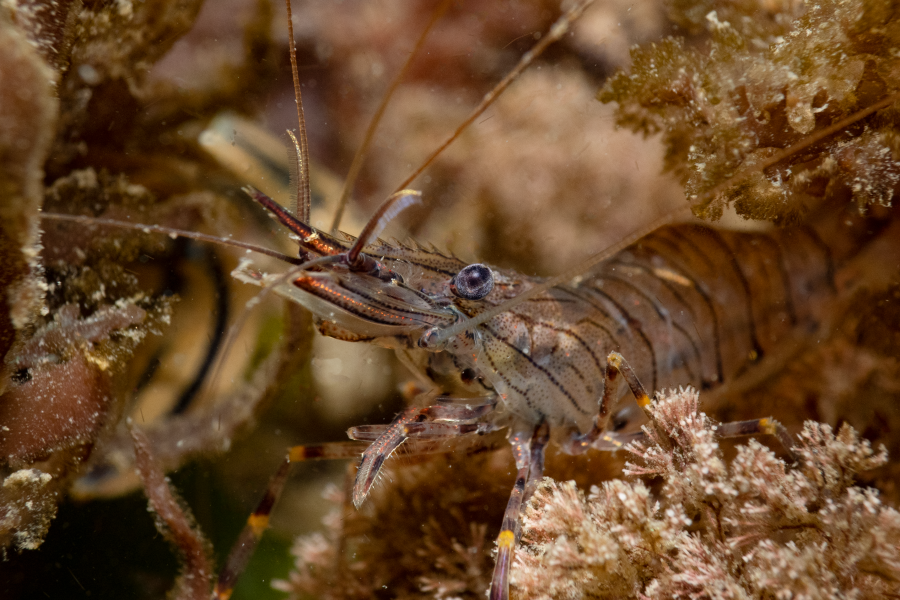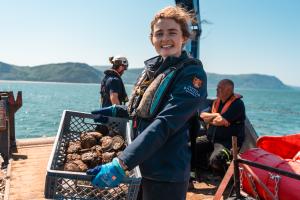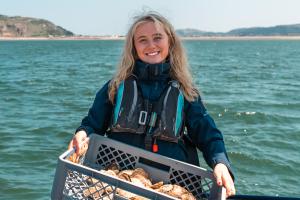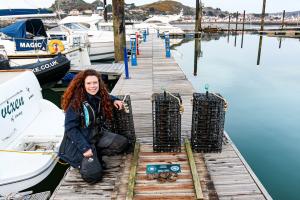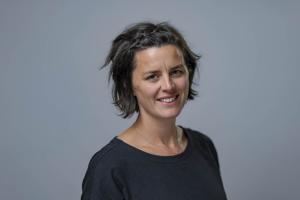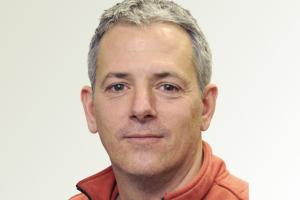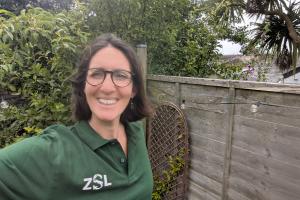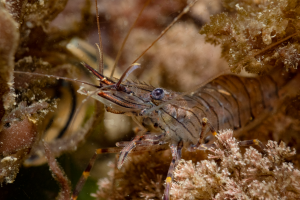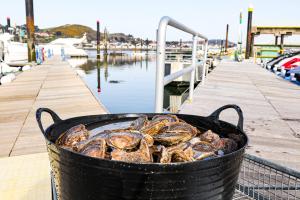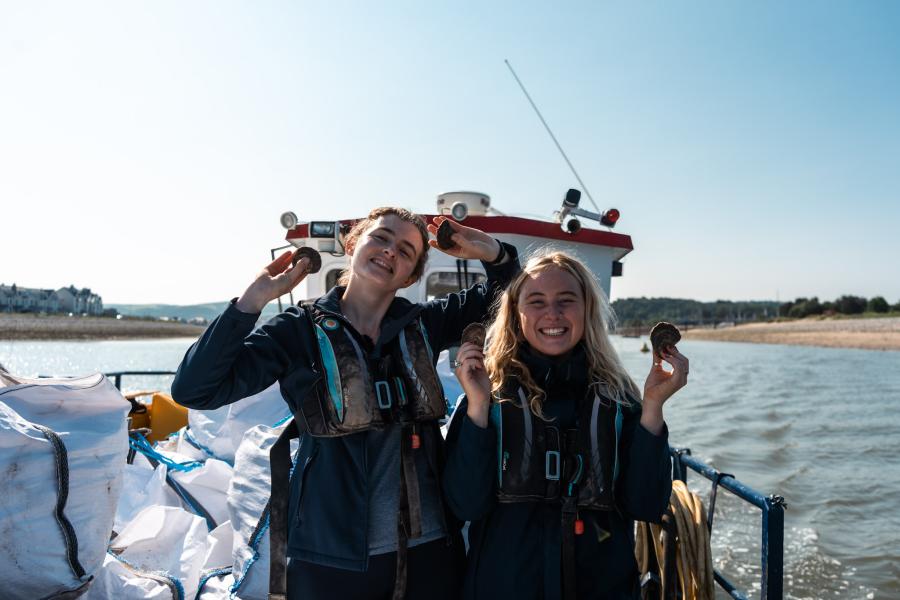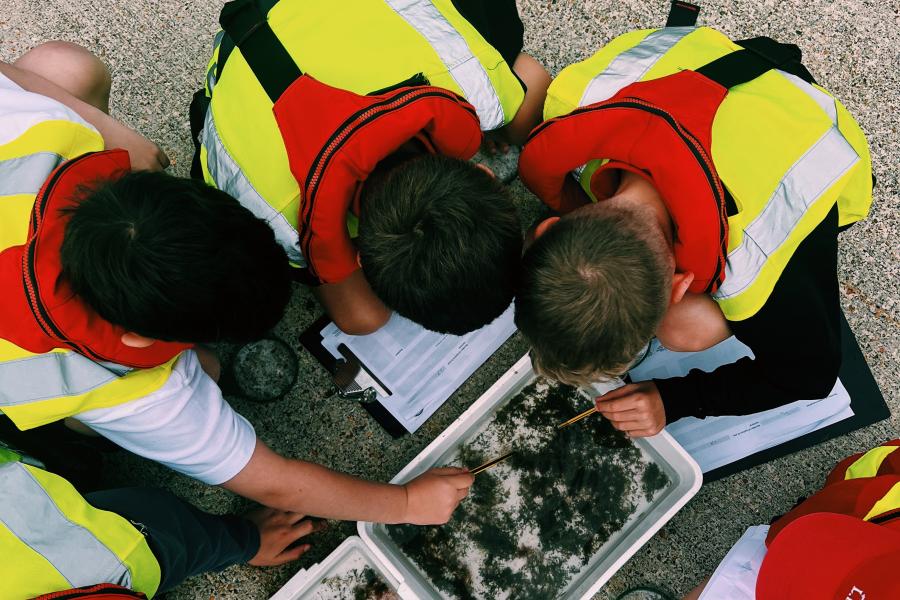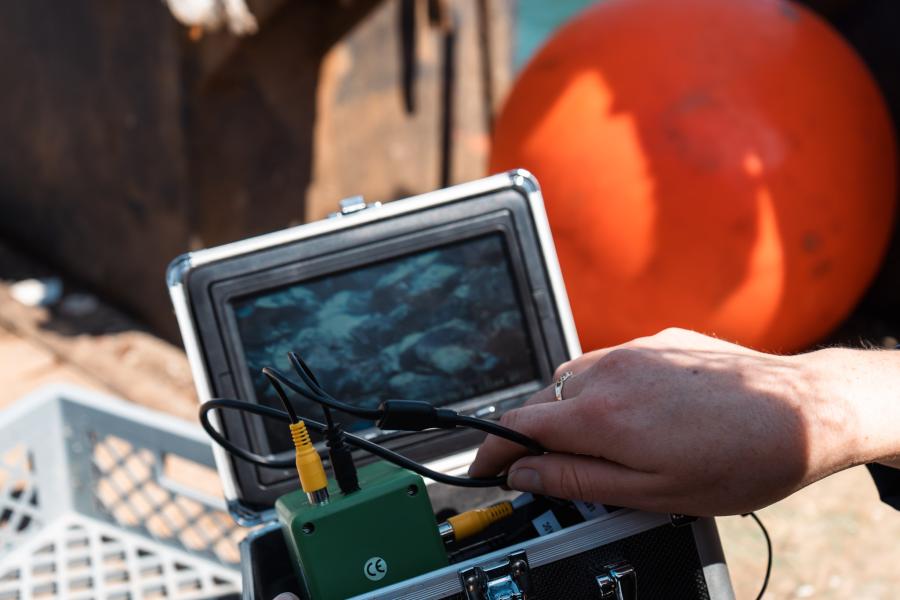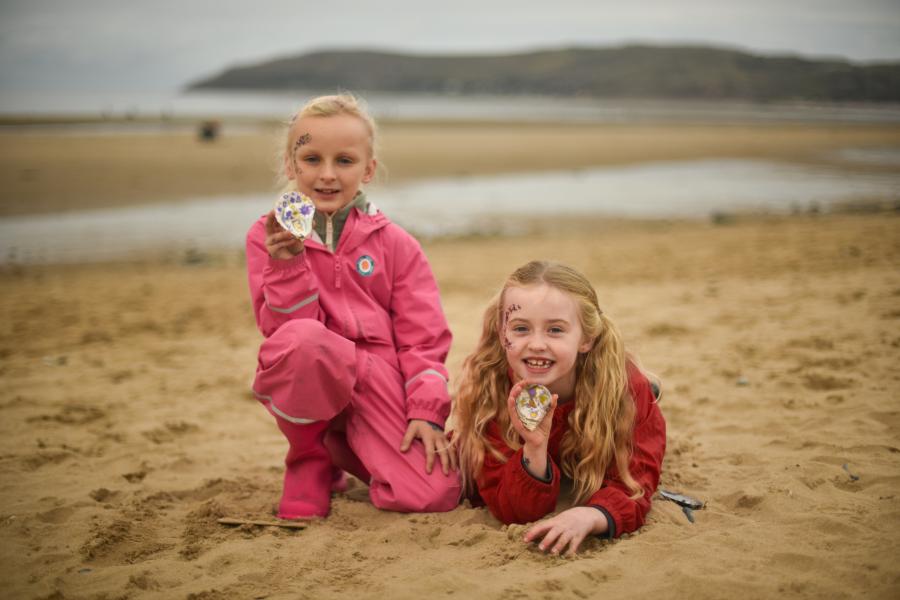What Do We Do?
This #NNF2 project seeks to restore native European oyster populations and their associated habitats in Conwy Bay.
Through this restoration, we aim to revive a biodiverse marine community and reconnect coastal communities with their natural heritage. The project encompasses habitat restoration, scientific research, and community engagement through citizen science, public outreach, education and inclusivity.
By combining ecological restoration with local engagement, we contribute to the long-term recovery of the native oyster - a species once historically significant to the Welsh coastline—and promote greater awareness of marine stewardship.
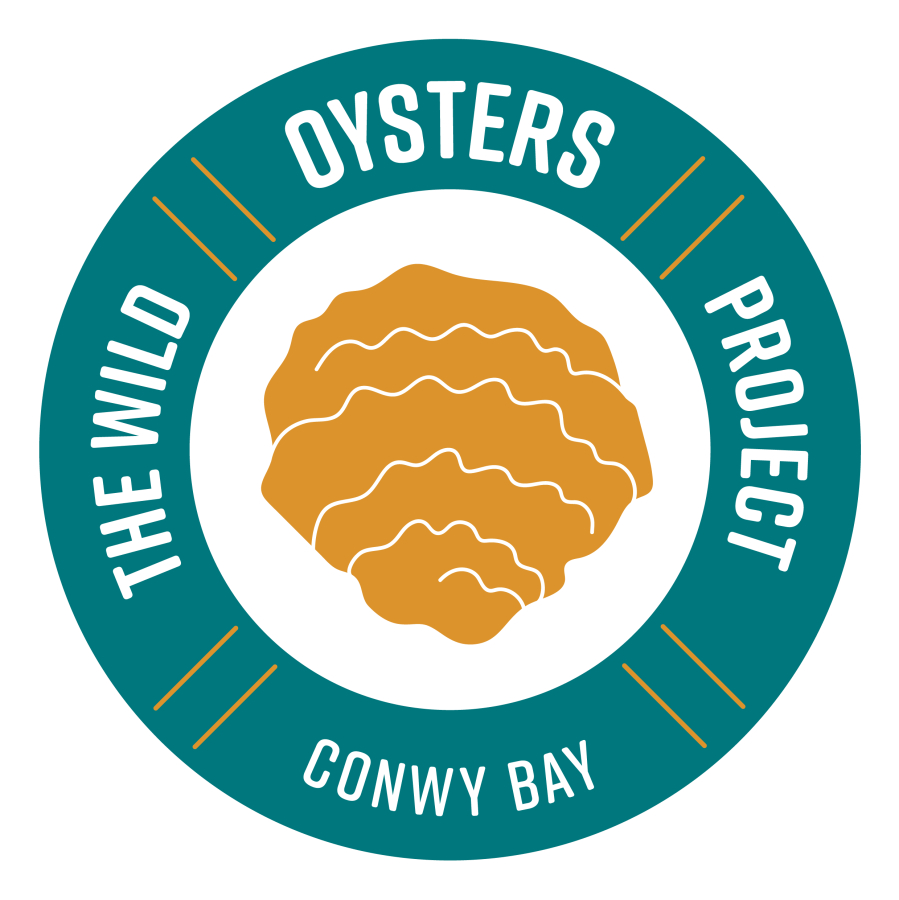
How we aim to restore the native oyster
What Are Oyster Nurseries?
Oyster nurseries are protected, controlled environments designed to house mature native oysters, giving them the opportunity to reproduce and release larvae into surrounding waters. These structures are a vital tool in oyster restoration, helping to rebuild populations where oysters have declined or disappeared.
Why We Use Them
At our pilot sites in Conwy and Deganwy Marinas, we’ve installed suspended oyster nurseries beneath pontoons—each housing approx. 27 mature oysters. These sites create ideal conditions for reproduction, offering protection from predators, sedimentation, and wave action. The close proximity of oysters in these nurseries supports regular spawning and larval release.
How They Work
Enhanced Reproduction: The setup encourages natural spawning, with larvae released into the water column during breeding seasons.
Protection: The structure safeguards oysters from smothering sediment, predators, and harsh conditions.
Larval Dispersal: Released larvae can settle on suitable nearby seabed, forming new oyster reefs and contributing to population recovery.
Environmental and Community Benefits
Boosting Oyster Numbers: Nurseries help restore self-sustaining native oyster populations in the bay.
Water Filtration: Oysters filter water, removing excess nutrients and improving clarity and quality.
Habitat Creation: Settled oyster larvae form reef habitats that support a wide range of marine life.
Citizen Science: Local volunteers are trained to support monthly nursery monitoring—collecting data on oyster health and local biodiversity while playing a hands-on role in marine conservation.
Oyster reef restoration is the process of rebuilding natural oyster habitats by creating the right conditions for oysters to settle, grow, and form reef structures. These reefs support marine biodiversity, improve water quality, and help restore healthy coastal ecosystems.
In Conwy Bay, we set out to restore native oyster habitat by creating a reef on the seabed using limestone gravel and weathered scallop shells. These materials provide the hard surface oyster larvae need to attach to and grow.
In some communities, a living memory of native oysters endures; in others, that connection has faded. The Wild Oysters Conwy Bay project seeks to rekindle this cultural heritage by restoring the presence and significance of native oysters in Conwy Bay. Through a dedicated and ambitious programme of public engagement, education, and citizen science—with enhancing inclusivity—we aim to reconnect people with their marine environment and shared coastal history building on ocean literacy. By fostering understanding, curiosity, and stewardship, we hope to inspire a new generation of ocean advocates who will champion the recovery and protection of our native oyster populations.
Get Involved
Oyster Nursery Monitoring
Our oyster nurseries are located at Conwy Marina and Deganwy Marina, where they provide safe, controlled environments for native oysters to grow and release larvae into the surrounding waters. These nurseries not only support the recovery of oyster populations but also act as a hub for community science and engagement.
We welcome volunteers to help us monitor these sites. As a citizen scientist, you’ll:
- Collect data on oyster health and growth
- Record the marine species living around the nurseries
- Help monitor environmental conditions like water temperature and salinity
No previous experience is needed—full training is provided, and all backgrounds are welcome (age 18+). It’s a great way to learn about local marine life, meet like-minded people and make a hands-on difference in oyster reef restoration.
Please get in touch to find out more and join the volunteer group.
Education Programme
Our Wild Oysters Education Programme, which is linked to the Welsh curriculum, is designed to inspire students from Key Stage 2 through to Higher Education, connecting learners with real-world marine conservation.
Whether you're a teacher, lecturer, youth group leader, or student, our programme provides meaningful learning experiences that support ocean literacy, biodiversity awareness, and environmental stewardship.
- Students to have a greater knowledge and awareness of native oysters and the ecosystem services they provide.
- Students to have a greater knowledge and understanding of marine habitats in the UK and the marine environment resulting in increased ocean literacy.
- Students to have increased awareness and understanding of their local Wild Oysters project.
- Students are inspired to care for the marine environment and become marine stewards.
Linked to the Welsh national curriculum and available in both Welsh and English, the programme offers a range of free activities and experiences to bring ocean science to life:
- Oyster Safari – see native oysters up close in our nursery systems
- Classroom workshops and assemblies – curriculum-linked and available in-person or digitally
- Hands-on participation – help monitor and care for our oysters as part of our live restoration project
- Internship and research opportunities – for college and university-level students
For group bookings or to find out more, contact wild.oysters@zsl.org or your local project officers: rhianna.parry@bangor.ac.uk or m.hayden-hughes@bangor.ac.uk
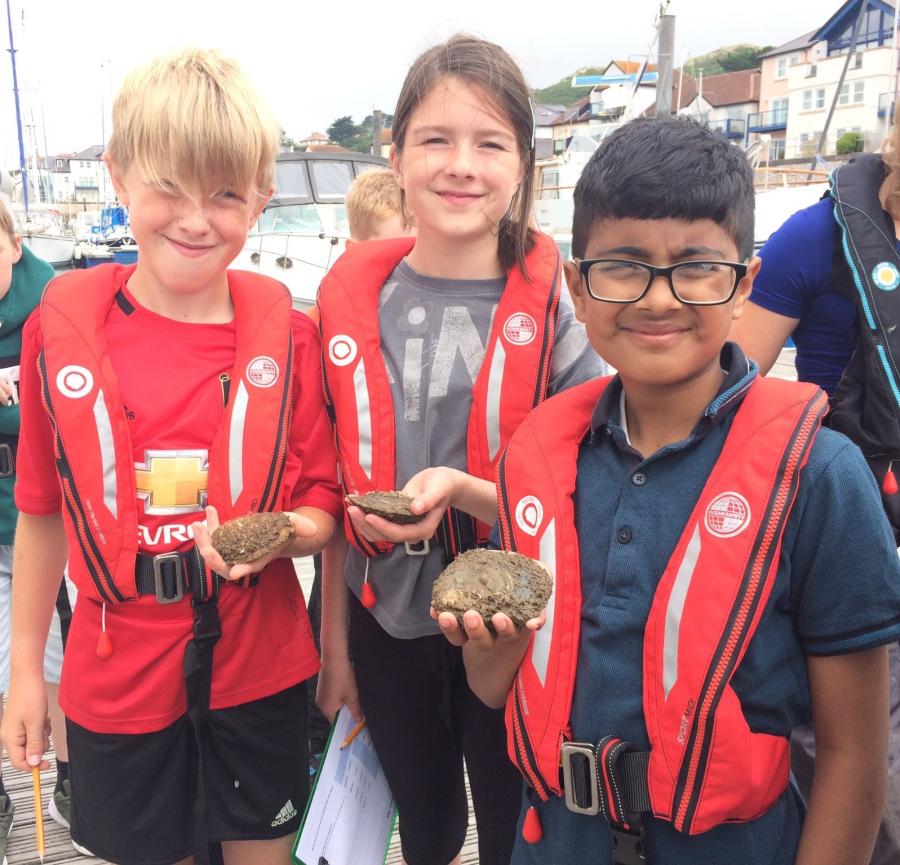
Meet the Team
Latest News
See MoreUpcoming Events
Contact Us
If you would like to get involved in the Conwy Bay oyster restoration efforts, please get in touch.

